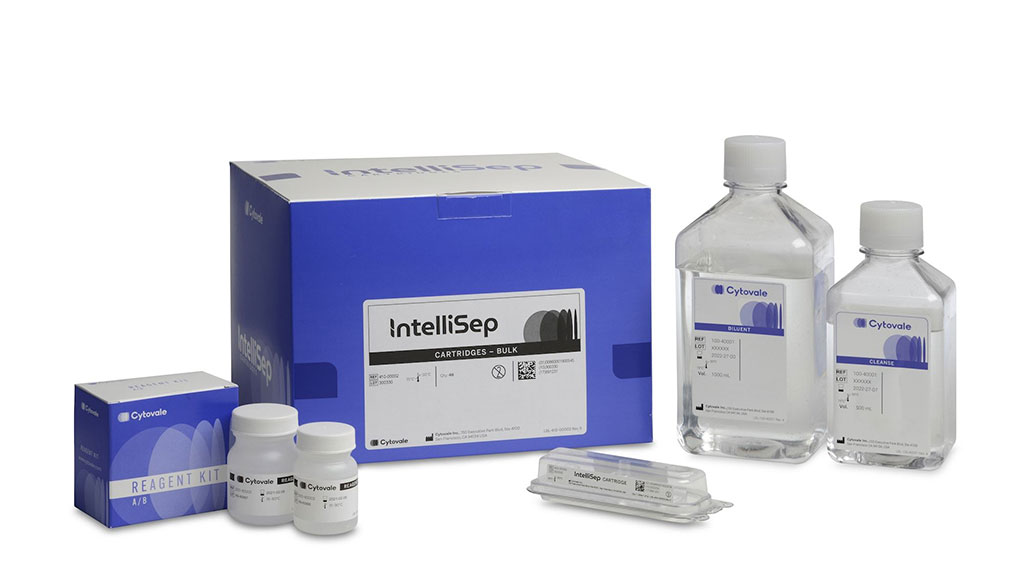Sepsis Test Could Save Lives in Emergency Departments, Study Suggests
Posted on 29 Sep 2023
Sepsis poses a severe, life-endangering illness that arises when an infection triggers a body-wide chain reaction, potentially causing multiple organs to fail quickly. Prompt and accurate diagnosis is crucial for survival, especially for high-risk groups like older adults and individuals with chronic conditions such as kidney disease or cancer. When these at-risk patients arrive at a hospital's emergency department, healthcare professionals assess them for signs of sepsis. Since there's no definitive test for diagnosing sepsis, doctors rely on their expertise to recognize a mix of infection and inflammation indicative of the condition.
An interdisciplinary team of researchers led by Penn State (University Park, PA, USA) has now found that Cytovale’s (San Francisco, CA, USA) IntelliSep blood test for sepsis could save lives and money. The IntelliSep test evaluates changes in a person's white blood cells, quickly determining if the patient is at a high risk for sepsis. The study examined the financial implications of implementing IntelliSep in emergency departments by analyzing its cost-effectiveness for patients suspected of having sepsis.

For their analysis, the researchers used earlier IntelliSep test data and compared it with another test that gauges patients' procalcitonin levels, an indicator of sepsis. Procalcitonin which serves as a biomarker is released by the body during an infection and can be measured with a simple blood test. While procalcitonin levels can offer clues for sepsis diagnosis, they only reveal the presence of an infection and not the accompanying inflammation specific to sepsis. The team noted that procalcitonin tests are not part of standard clinical guidelines, and healthcare providers haven't broadly embraced them over clinical judgment.
The study showed that IntelliSep outperformed procalcitonin testing. Using IntelliSep could lead to a survival rate of over 95% in patients, costing less than USD 4,000 per individual for treatment. These figures represent both a slightly higher survival rate and a lower cost compared to using procalcitonin tests. The primary source of the cost reduction was a more accurate diagnosis of sepsis, the researchers pointed out. Patients with undetected sepsis can be expensive to treat and are at a substantially higher risk of death. However, the research team clarified that IntelliSep is not a replacement for quality clinical care; rather, it should serve as an additional tool to assist clinicians in diagnosing sepsis.
“For patients who have sepsis, getting sent home from the hospital is very serious because they can suffer multiple-organ failure within hours,” said Christopher Hollenbeak, professor of health policy and administration in the Penn State College of Health and Human Development, who led the research. “Every year, there are patients who enter the emergency department of a hospital, present with a limited number of sepsis symptoms and are sent home. This test could save many of those people’s lives.”
Related Links:
Penn State
Cytovale











 (3) (1).png)


